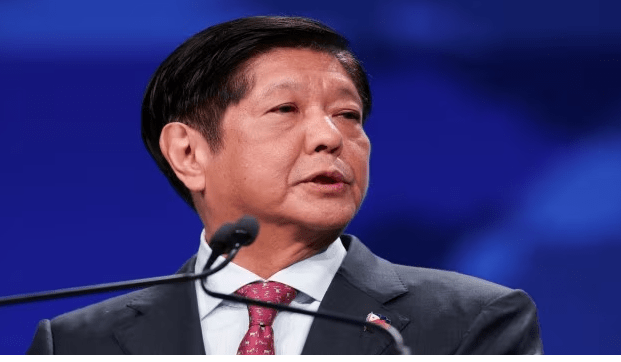Philippines and Vietnam sign agreements on South China Sea security.
The South China Sea, which serves as a conduit for $3 trillion in ship-borne commerce annually and is nearly entirely claimed by China, is a region over which the two Southeast Asian nations have rival claims
President Ferdinand Marcos Jr. made the declaration on Tuesday while on a state visit to Hanoi, Vietnam and the Philippines decided to strengthen their coastguards’ collaboration and work together to avoid any unfortunate accidents in the South China Sea.
The South China Sea, which serves as a conduit for $3 trillion in ship-borne commerce annually and is nearly entirely claimed by China, is a region over which the two Southeast Asian nations have rival claims.
According to a Vietnamese official who made the announcements at a ceremonial ceremony in the nation’s presidential palace, the two memoranda of understanding on security addressed “incident prevention in the South China Sea” and “maritime cooperation” among coastguards.
The agreements in Hanoi, the specifics of which were not made public, run the danger of infuriating Beijing, particularly if they set the stage for further concessions on contentious claims in the future. China has a tendency to be sceptical of any progress made in resolving border disputes involving other claimants.
Run-ins with China’s coastguard have happened in the past in both Hanoi and Manila, but in the last year, there have been several altercations involving Chinese and American ally Philippines boats, further straining already strained relations.
Prior to his meeting with President Vo Van Thuong of Vietnam, Marcos declared that Vietnam was “the sole strategic partner of the Philippines” in Southeast Asia, emphasising that their relationship was built on marine cooperation.
“The world and regional situation is evolving in a rapid and complicated manner and therefore we need to unite and cooperate more closely,” Vietnamese Prime Minister Pham Minh Chinh said, noting Marcos’ visit helped boost bilateral relations.
Vietnam, one of the world’s biggest rice exporters, also sealed agreements with the Philippines, a top importer of the grain, covering rice trade and agriculture cooperation.
In his two-day visit to Hanoi, Marcos is meeting Vietnamese leaders, but not Communist Party chief Nguyen Phu Trong, according to official schedules, in what would be Trong’s third consecutive absence from meetings with visiting leaders this month.
Trong, 79, however attended a parliament’s session in mid-January, partly dispelling concerns about his health after he was not included in official schedules of visiting leaders from Laos and Indonesia.
Before meeting Vietnamese political leaders on Tuesday, Marcos met Pham Nhat Vuong, the head of Vingroup (VIC.HM), opens new tab, Vietnam’s largest conglomerate, on Monday.
The company said on Tuesday that its electric car unit VinFast will open a business network in the Philippines.
Marcos said the Philippines could help in the production of batteries for electric vehicles, thanks to its reserves of cobalt, copper and nickel, according to Vingroup’s statement.













